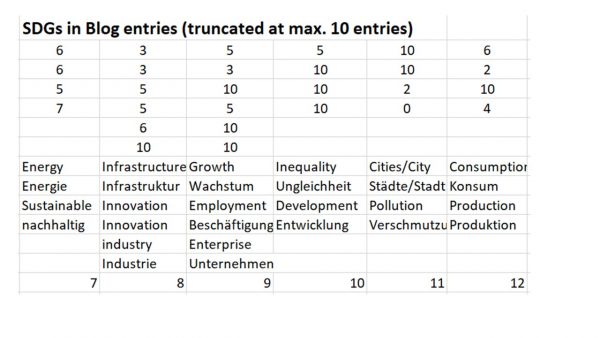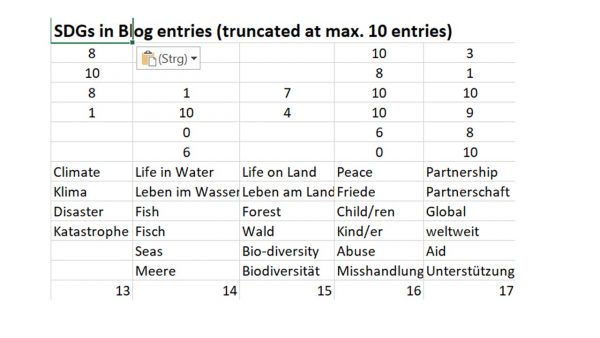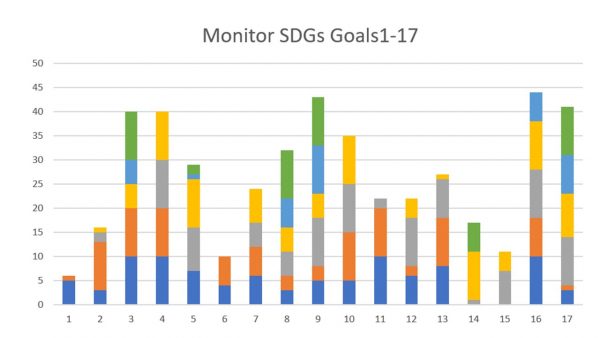The smurf series of comics has been a world-wide success as children-books. Many adults enjoy re-reading some of their old comic books to their children or grand-children. Now let us try it the other way around. Our children try to sell us the concern for the environment by talking to us through the designs of smurfs, Schlümpfe or Strümpfe, as they are called in various translations. Maybe this way we are more open to take a serious look at the Strategic Development Goals (SDGs) of the UN. Easily accessible and getting us through an emotional connection might work better than tedious lengthy documents and statistics of continuous failure (e.g. on hunger) of most parts of the world.
Tell the story of the smurfs with the SDGs in mind. See how far you get in remembering the whole list of 17 stories. Build a narrative around each of the images. There is no way around getting nearer these goals for our very own survival as a species. Intergenerational communication works both ways from young to old as well as from old to young. Design your own characters, if you like, with the same SDGs in mind. Only this way we shall broaden the supporters for the goals beyond the expert circles of politicians and policy advisers. Happy drafting and rapid implementation! We can do it, if we want to. 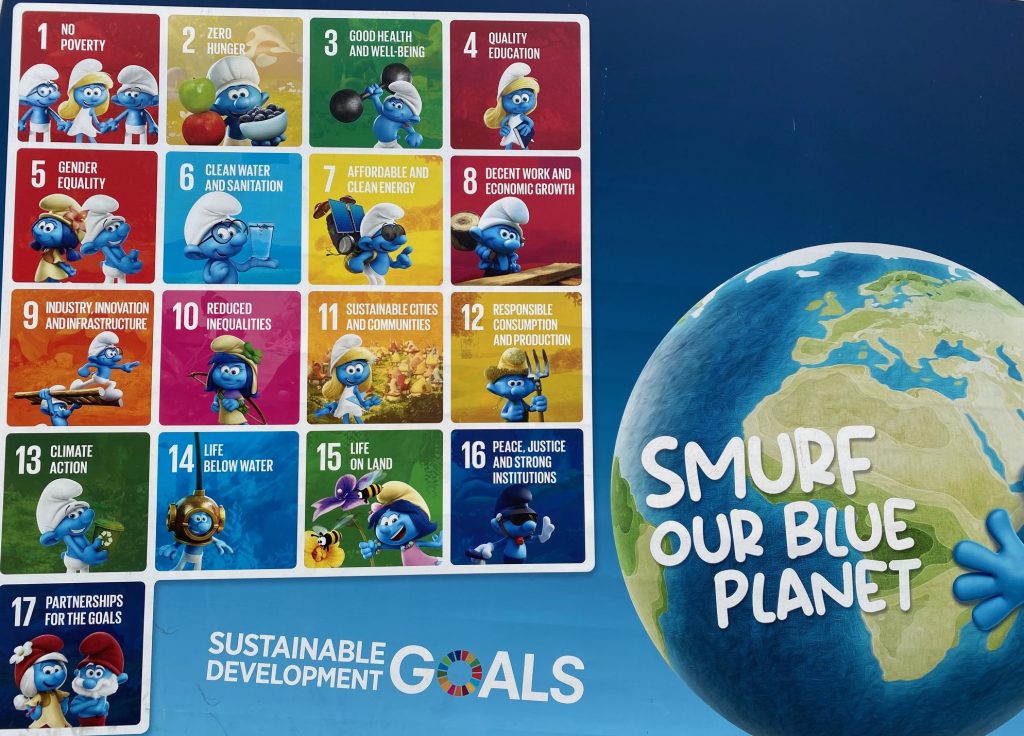
Hunger
The UN strategic development goals (SDGs) list after the eradication of hunger as number 2 no hunger by the year 2030. Following the report of FAO, the UN 🇺🇳 organization in charge of nutrition in a larger sense, the world is moving further away from reaching this goal in the 4 last years. The Covid-19 pandemic had disrupted supply chains and caused higher prices for basic ingredients. The poorest countries were most vulnerable to such price increases when even in the rich world government deficits were rising sharply. Before sufficient relief arrived Russia’s war in Ukraine destroyed crops, interrupted again supply chains from Ukraine to many of the poorest nations. Energy prices are a substantial part in the production of fertilizers for agricultural products. Same story Russia disrupted the whole supply chains for food production at affordable prices for the poorest parts of the world. Additionally, Indian food production was lower due to the drought, Pakistan had extreme flooding. Both countries are important export nations for feeding the world. Continuing climate change is likely to put global food production under additional pressure. Price rises will hit the poorest again and again. Feeding animals with crops that could otherwise alleviate hunger in other parts of the world puts the rich world’s consumption patterns also into the spotlight. Fighting global hunger is largely a question of how wealthy nations deal with nutrition. The struggle to fight obesity and hunger under the joint concern of malnutrition unites all parts of the world. Time to act together on both topics.
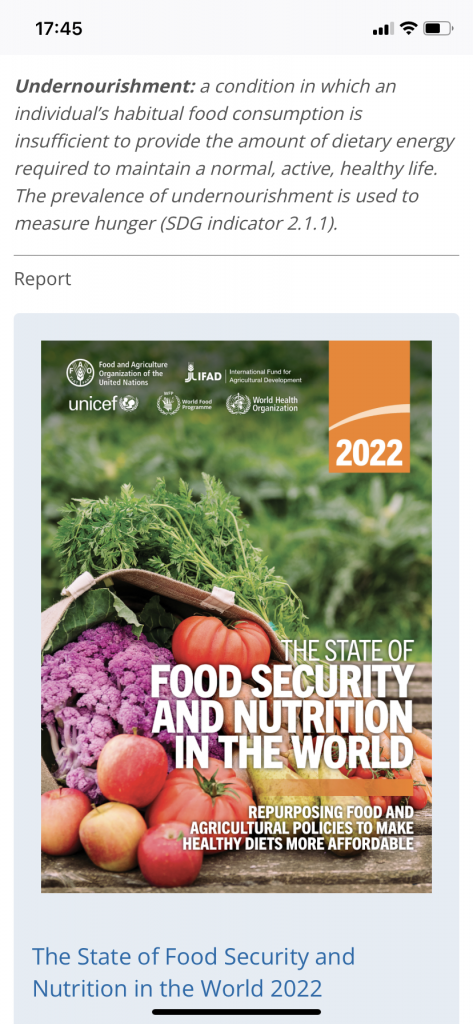
Put People First
Put people first is a natural claim of human beings. We tend to abstract from the fact that we implicitly rely on a sufficient biodiversity for our survival. Therefore, the natural claim to put people first has many preconditions itself and severe implications. The most obvious implication is related to our world of production and consumption. We need to build an economy that serves its people rather than one that uses up human resources and discards people to an inferior rank of importance. Externalising health and safety at work to save money in the process of production will only cost society much more later on. This needs to be part of the balance sheet of companies not only “national accounts” or relegated to some health statistics hardly known to the public.
Put people first in consumption, has come to our attention recently. With energy prices rising due to Russia’s war on Ukraine territory we have learned that energy prices may be grossly distorted. Firms’ versus consumers’ energy consumption became a thorny issue. Even legislation, like in Germany, that put people’s energy consumption before companies’ consumption of energy became subject for debate.
Same issue with artificial intelligence. Let’s put people first here as well. Discriminating use of language or biased conclusions due to wrong data input to train AI is not acceptable as excuse. AI may serve humans in their work or leisure, improve production lines through error detection or early onset of disease, but it cannot replace the human verification of a just or otherwise justified human intervention. Humans are not perfect, never will be either. This is a tough rule to teach the algorithms that guide AI. Put people first has a strong interpersonal or solidarity element enshrined in it. This is what matters, now, in the medium term as well as the long run. 
Monitor SDGs7
The complete monitoring of the SDGs of the UN for global development shows a surprisingly large coverage of topics. The search function is indiscriminate of some contradictions or returns the same entry twice like in sustainable industry. However, the simple check reveals frequent and less frequent entries. Entries 1 = Poverty, 6 = Water and 14 + 15 = Life on Land and in Water received less attention. The agenda for the coming weeks is set. 